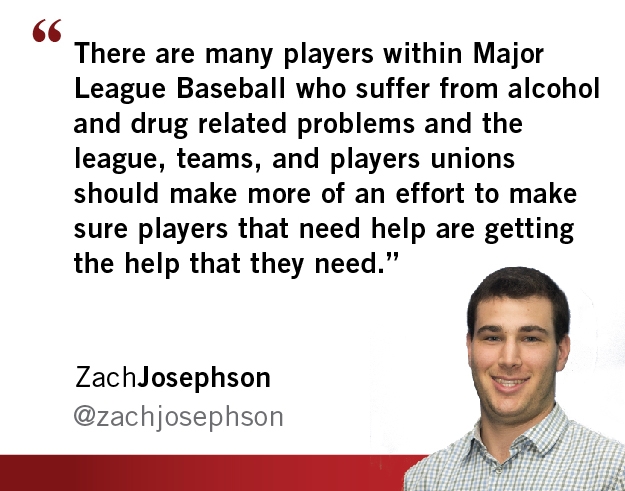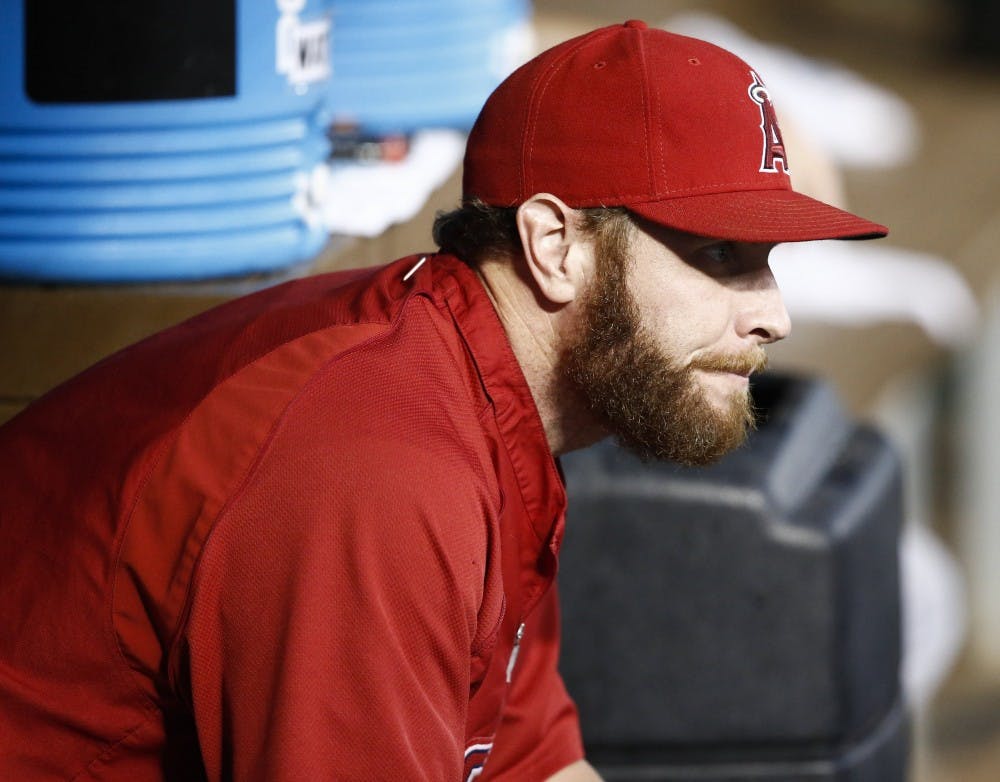For more than the past decade, Major League Baseball has had a very public problem with its players using performance-enhancing drugs. This problem has been especially prevalent throughout minor league baseball, but there have several high-profile suspensions in the majors over the past several years. From 2007 to 2014, major and minor league players missed more than 25,000 games because of drug suspensions, according to Bloomberg.
Many of these suspensions have been in response to players who were using performance-enhancing drugs, but under the surface, there is an issue that MLB has yet to properly address when it comes to players using drugs of abuse as well as alcohol related issues.
To start this season, some of MLB’s issues with drug addiction have been at the forefront with Los Angeles Angels’ outfielder Josh Hamilton. Hamilton suffered from drug abuse problems during his time in the minor leagues, but was able to work his way back into the league and had multiple All-Star seasons during his time playing for the Texas Rangers. In 2013, he left Texas during free agency and signed a five-year, $125-million deal, during which time he has failed to perform at the same level as he did while in Texas.
During the 2014 offseason, Hamilton relapsed into substance abuse and reported his relapse to the league. The league recently announced that it won’t suspend Hamilton for his relapse, but his team has expressed its interest in using the relapse as a way to get out of their financial obligations to Hamilton. While Hamilton has received support from other players around the league, the Angels owner Arte Moreno is reportedly “bracing for a fight with the Major League Baseball Players Association whether Hamilton even gets paid, insisting there are specific clauses in his contract that provides the Angels recourse in the event of an alcohol or drug-related relapse.”

While the team has an obvious reason to be concerned with the amount of money it owes Hamilton, it should have a responsibility to care for the health and well being of its players. The team should play a more active role in insuring that its players who are suffering from substance abuse issues receive any treatment that they need in the interest of player safety.
Alcohol isn’t a substance banned by MLB, but several players from the league have suffered from issues caused by excessive drinking. In 2007, St. Louis Cardinals pitcher Josh Hancock died while driving under the influence with a blood-alcohol level of 0.157. More recently, last October another Cardinals player, Oscar Taveras, died in a car crash while he had a blood-alcohol level of 0.287.
The fact that both of these players were Cardinals is simply a coincidence, but there seems to be a problem brewing across baseball surrounding how it deals with substance abuse issues. In addition to the league and its teams, the players unions should be involved in working together to find ways to help players across the league deal with these dangerous and debilitating issues. In the long term, player safety is more important than the three years remaining on Josh Hamilton’s contract and all involved parties have a responsibility to work towards making baseball safer for its players.
Reach the columnist at zjosephs@asu.edu or follow @zachjosephson on Twitter.
Editor’s note: The opinions presented in this column are the author’s and do not imply any endorsement from The State Press or its editors.
Want to join the conversation? Send an email to opiniondesk.statepress@gmail.com. Keep letters under 300 words and be sure to include your university affiliation. Anonymity will not be granted.
LikeThe State Press on Facebook and follow @statepress on Twitter.




